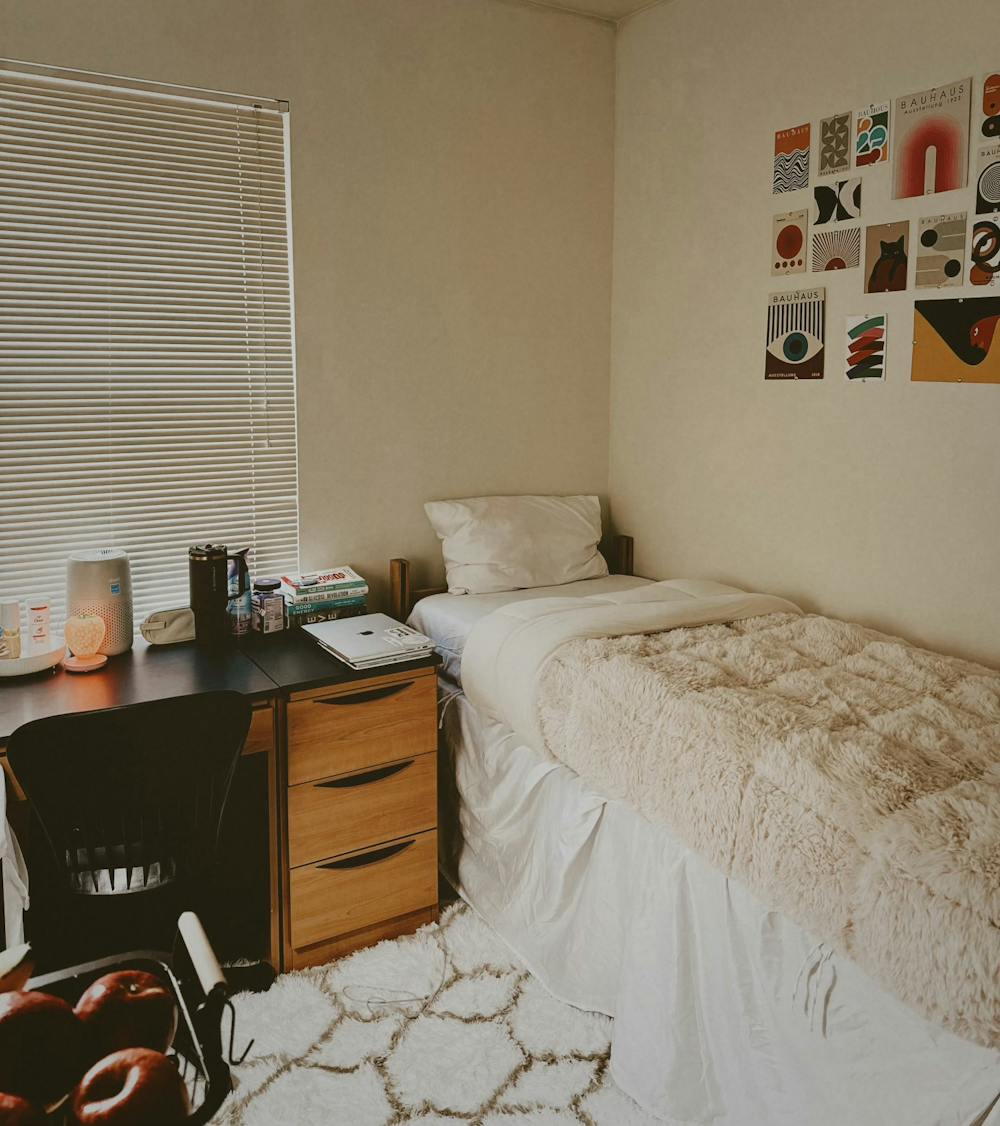The sophomore housing selection process operates as a lottery. You cross your fingers for a good time slot to log into the portal first and claim your preferred residence hall. My top pick was a single room in a double suite in Scott-Bates Commons — where I am currently writing this article.
Every freshman in the spring semester was on edge in the days leading up to housing selection, chattering about whether they would get stuck sharing a double room in McCoy. Considering how much we pay in tuition, I remember wishing the bare minimum would be ensuring every student had a space they felt comfortable in. Few people might complain about being placed in a single instead of a double room, yet the reverse is all too common and can shape an entire year.
I believe universities should reevaluate the housing responsibilities they have toward students, and such an evaluation should end with structural modifications of residence halls to convert double rooms into two singles to better meet students’ needs.
Over a year ago, as I prepared to fly into the Nest, I had a million concerns. Most would worry about doing well in classes or adjusting to a new city. However, sharing a dorm room was the biggest rain cloud that followed me from Ohio to Hopkins as I imagined how drastically my day-to-day life would change moving from my private room at home to a double room in Wolman.
Many sophomores and upperclassmen offer hopeful reassurances: “It wasn’t so bad,” or “You have nothing to worry about.” But candidly, having to share a room was the worst part of my first year at Hopkins. My quality of life and overall happiness would have been much higher in a private space — for a few key reasons.
Secure Study Spot
Since the Milton S. Eisenhower Library (MSE) has been under construction and will be for a while, most underclassmen relied on Brody Learning Commons, Gilman or the Annex. Because of MSE’s closure, it was nearly impossible to find an empty chair in any of those buildings. College courses demand a lot of studying, and it is not ideal to scour campus just to find a place to work besides your shared room.
In a double room, your studying is hindered by variables like the brightness of your computer screen or desk lamp that may disturb your roommate. Additionally, vocally reaffirming your knowledge has been shown to aid learning — a technique I now use frequently in Commons but could not employ in Wolman.
Lifestyle Freedom
When you have a roommate, you are constantly aware that your habits could be observed. Research suggests that spreading out exercise throughout the day instead of running five miles in one burst is better for overall health and the production of antioxidants. At the end of every hour, I give myself a break from studying by speed-walking around my room for a couple of minutes while listening to music — something I would have been creeped out to do in a shared space.
Additionally, if you share a room, guests should come over only occasionally and not overstay their welcome. Although I do 90% of my studying alone in my room, I enjoy working on homework with my friend so that we can ask each other questions. It would be unfair to dissect physics homework or a molecular biology back-test at 3 a.m. while your roommate is asleep. Previously, I would have had to reserve a library room for two hours or hunt for two open seats at Starbucks after class. Single rooms remove such constraints, freeing group study from the limits of shared spaces.
Mental Wellbeing
Most importantly, having a single room has greatly improved my mental health and Hopkins experience. Humans are social creatures, and double rooms can offer companionship. However, there are countless ways to build a community in college that do not involve housing — joining a club, attending a campus event or simply connecting in common spaces.
Sometimes, you have a terrible day, and having your own space to decompress makes all the difference. I am a firm believer in crying — it calms down your nervous system, helps rid your body of stress hormones and releases oxytocin and endorphins. No matter how great your roommate is, few people feel comfortable crying loudly across the room from them. The same goes for joyful moments: being able to watch your favorite show without headphones is its own kind of peace.
For these reasons, I believe colleges should invest in more single dorms so housing becomes a matter of preference, not luck. Students who want a more social experience can choose doubles or triples, while those of us who find solitude essential to our well-being can happily live in singles. Whether by building new residence halls or reconfiguring existing ones to turn doubles into singles, the impact a single room can have on a freshman year should be a priority for all universities.
Godson Nkanginieme is a sophomore from Canton, Ohio majoring in Molecular & Cellular Biology.





